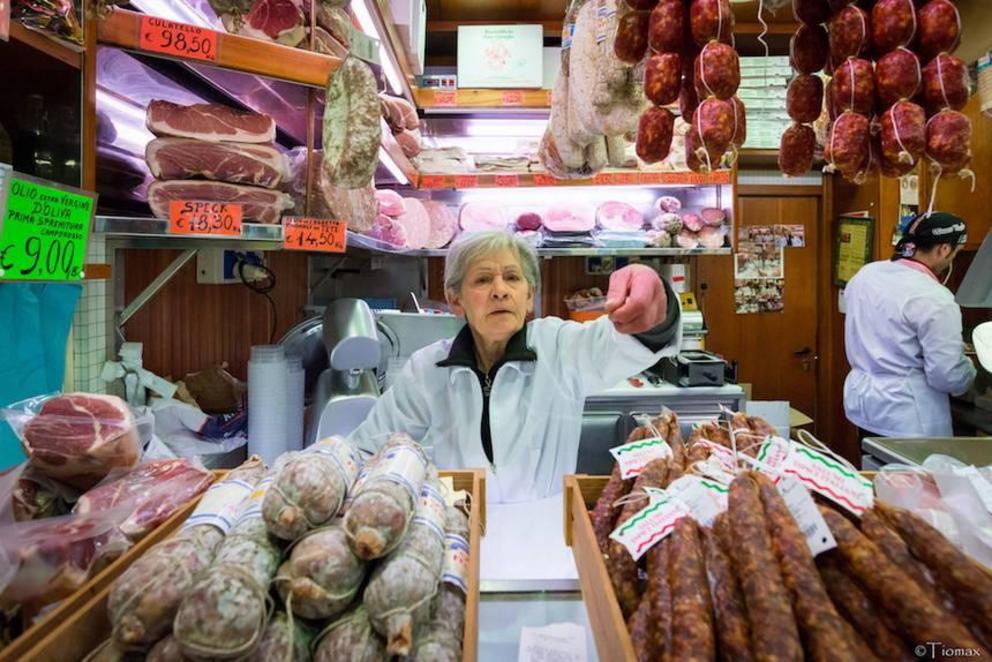Experts demand that meat industry ditch cancer-causing additives
A coalition of UK doctors and politicians says nitrites in processed meat is as serious a public health issue as sugary and fatty foods.
A group of doctors and politicians in the United Kingdom are calling on the government to crack down on nitrites in processed meat products. Led by cardiologist Aseem Malhotra and food scientist Prof. Chris Elliott, the group is warning that the chemicals used to cure bacon, ham, and salami are carcinogenic and require immediate action.
This is not new news. The World Health Organization made headlines in 2015 when it first stated that eating processed meats can cause cancer and estimated that 34,000 cancer deaths occur each year by eating a diet that's high in processed meat. Four years on, after the initial hysteria passed, not much has changed, and this concerns the doctors and politicians who make up the coalition that is now speaking out.
"[The coalition] says there is evidence that consumption of processed meats containing these chemicals results in 6,600 bowel cancer cases every year in the UK – four times the fatalities on British roads – and is campaigning for the issue to be taken as seriously as sugar levels in food."
Additional studies published this year support their stance. A Glasgow University study suggested that "reducing processed meat consumption could cut a woman’s risk of developing breast cancer" and another study out of Johns Hopkins University School of Medicine in the United States pointed to an alarming link between mental health problems and processed meat consumption: "Its 10-year analysis of more than 1,000 people found patients taken to hospital with manic episodes were three times more likely to have recently eaten nitrite-cured meat."
The problem is the way in which most meats are cured, with the addition of nitrite and sometimes nitrate. Nitrite is added to prevent botulism and the development of off-flavors and to give the pink color that is commonly associated with cured meats; but it converts to nitrosamines during processing, storage, and cooking, and these are known to be carcinogenic. An excerpt from the International Encylopedia of Public Health (2008), via Science Direct, says,
"Extensive animal experiments have substantiated that nitrosamines are strong carcinogens, which are closely related to the carcinogenesis of gastrointestinal cancer. Long-term consumption of foods containing nitrosamines, such as pickles, salted fish, bacon, or leftover food with high nitrite content, may induce gastrointestinal tumors. For this reason, regulatory authorities should strictly control the use of nitrite in food, while individuals should reject eating high-nitrosamine food."
Contrary to what the food industry says, it is possible to cure meats without nitrites on an industrial scale, as proven by Parma ham producers, who stopped using nitrites 25 years ago, and Nestle, which recently stopped their use in France. Interestingly, even when deli meats claim to not have nitrites added, they can still contain them because these naturally occur in certain vegetable juices and powders. From the New York Times:
"As a result some 'natural' or 'organic' roast beef and turkey breast, or other products cured with sea salt, evaporated cane juice, potato starch, or natural flavorings or seasonings, may end up with just as high a nitrite content as meats with sodium nitrite added."
The UK group wants the government wants to prioritize the elimination of nitrites from people's diets, and to treat it with the same level of urgency as it does sugary and fatty foods. In the words of Dr. Malhotra, the meat industry "must act fast, (and) act now – or be condemned to a similar reputational blow to that dealt to tobacco."
Sounds like another rock-solid reason to embrace plant-based eating.

